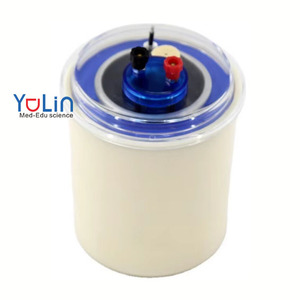Understanding Calorimeter Experiment
A calorimeter experiment is a vital scientific procedure used to measure the heat transfer during chemical reactions or physical changes. This instrument assists in investigating the thermodynamic properties of substances, making it essential in various fields such as chemistry, biology, and materials science. Through calorimetry, researchers can determine specific heat capacities, enthalpy changes, and calorific values, providing insights that are fundamental to both theoretical studies and practical applications.
Types of Calorimeter Experiment
Calorimeters come in several types, each designed to cater to different experimental needs. Here are the main types of calorimeter experiments:
- Constant Pressure Calorimeter: This type operates at atmospheric pressure, allowing for the measurement of heat changes during reactions that occur at constant pressure.
- Constant Volume Calorimeter: Also known as a bomb calorimeter, this design is used for reactions that occur at constant volume and is particularly useful in combustion studies.
- Differential Scanning Calorimeter (DSC): A more advanced type that measures the power required to keep the sample at the same temperature as a reference under controlled heating conditions.
- Isothermal Calorimeter: This variation is designed to maintain a constant temperature throughout the experiment, ideal for long-term measurements.
Applications of Calorimeter Experiment
The applications of calorimeter experiments span across various scientific and industrial fields:
- Chemistry Research: Calorimetric experiments allow chemists to explore reaction kinetics and thermodynamics by quantifying heat absorbed or released during reactions.
- Biomedical Fields: In biochemistry, calorimetry is used to study enzymatic reactions and proteins, aiding in drug development and metabolic studies.
- Material Science: It plays a crucial role in determining material properties, such as thermal stability and phase transitions in polymers and metals.
- Environmental Science: Calorimetry helps assess energy content and combustion characteristics of biofuels, contributing to greener energy solutions.
Advantages of Conducting a Calorimeter Experiment
Running a calorimeter experiment offers several benefits that enhance scientific understanding and practical applications:
- Precision and Accuracy: Calorimeters provide highly accurate measurements of heat changes, crucial for reliable data collection.
- Versatility: They can be used to study various processes, from simple chemical reactions to complex biological activities.
- Energy Efficiency: By understanding heat exchanges, industries can optimize energy consumption and develop more efficient processes.
- Educational Value: Calorimetry serves as a powerful tool for teaching fundamental concepts of thermodynamics in academic settings.









































